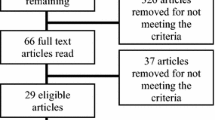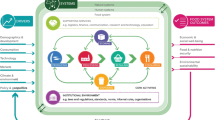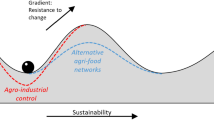Abstract
Currently, many consumers have expressed strong opinions about food production process, its distribution, and guaranteeing models. Consumers’ concerns about ecological and social sustainability issues can have significant impacts on both food demand and food policies. The choice of approach to an asset or service could determine the orientation of the markets; therefore, it is particularly important to pay attention to novel, collective, social movements which are practicing alternatives to the mainstream models of production, distribution, and consumption. Farmers markets, solidarity-based purchasing groups, box scheme, shopping groups, ‘pick your own’, social shopping, are all examples of sustainable consumption patterns involving thousands of people seeking quality and ethical products and services at the best price. While a variety of definitions of the concept of ethical consumption have been suggested, throughout this paper it will refer to the participation of consumers in, and their orientation toward, political discourses on sustainable and fair agro-food production. Ethical consumption attitude has been analysed in the framework of political consumerism theory by administering six focus groups among Italian participants of a specific form of collective action, namely the solidarity-based purchasing group. Findings provide insights that represent a fruitful starting point for deepening the analysis of ethical consumers’ behaviour at a broader level in order to sustain and spread eco-socially production practices and ethical consumption behaviour.






Similar content being viewed by others
Notes
As noted by DuPuis (2000) and Long and Murray (2013) not all ethical consumers have the same level of commitment to purchase ethical products. When the ethical consumers “[are] not social activist[s], nor [are they] committed to a particular political point of view” it would be more appropriate to refer to them as reflexive consumers (DuPuis 2000: p. 289).
Figure 2 reports the 24 topics more discussed.
For reference, consult IFOAM website: https://www.ifoam.bio/en/organic-policy-guarantee/participatory-guarantee-systems-pgs
References
Acemoglu, D., & Robinson, J. (2012). Why nations fail: The origins of power, prosperity, and poverty. New York: Crown Publishing Group.
Alkon, A. H. (2008). From value to values: Sustainable consumption at farmers markets. Agriculture and Human Values, 25(4), 487–498.
Aprile, M. C., Caputo, V., & Nayga, R. M. (2012). Consumers’ valuation of food quality labels: The case of the European geographic indication and organic farming labels. International Journal of Consumer Studies, 36(2), 158–165.
Barham, E. (2002). Towards a theory of values-based labelling. Agriculture and Human Values, 19(4), 349–360.
Bauman, Z. (2007). Consuming life. Cambridge: Polity Press.
Brenton, S. (2013). The political motivations of ethical consumers. International Journal of Consumer Studies., 37(5), 490–497.
Caputo, V., Nayga, R. M., Jr., & Scarpa, R. (2013a). Food miles or carbon emissions information for food transport footprint: Modeling assumptions and WTP estimates from stated food choice. Australian Journal of Agricultural and Resource Economics., 57(4), 465–482.
Caputo, V., Vassilopoulos, A., Nayga, M. R., Jr., & Canavari, M. (2013b). Welfare effects of food miles labels. Journal of Consumer Affairs., 47(2), 311–327.
Cembalo, L., Migliore, G., & Schifani, G. (2013). Sustainability and new models of consumption: The solidarity purchasing groups in sicily. Journal of Agricultural and Environmental Ethics, 26(1), 281–303.
Clarke, N. (2008). From ethical consumerism to political consumption. Geography Compass, 2(6), 1870–1884.
Della Porta, D., & Diani, M. (2006). Social movements: An introduction. New York: Wiley.
DuPuis, E. M. (2000). Not in my body: BGH and the rise of organic milk. Agriculture and Human Values, 17(3), 285–295.
Eden, S., Bear, C., & Walker, G. (2008). The sceptical consumer? Exploring views about food assurance. Food Policy, 33(6), 624–630.
European Commission. (2001). A sustainable Europe for a better world: A European Union strategy for sustainable development (p. 264). Brussels: COM.
Fonte, M., & Salvioni, C. (2013). Cittadinanza ecologica e consumo sostenibile: Dal biologico ai Gruppi di Acquisto Solidale. In A. Corrado & S. Sivini (Eds.), Cibo locale. Percorsi innovativi nelle pratiche di produzione e consumo alimentare (pp. 81–103). Napoli: Liguori.
Goodman, D. (2002). Rethinking food production–consumption: Integrative perspectives. Sociologia Ruralis., 42(4), 271–277.
Goodman, D. (2004). Rural Europe redux? Reflections on alternative agro-food networks and paradigm change. Sociologia Ruralis., 44(1), 3–16.
Graziano, P. R., & Forno, F. (2012). Political consumerism and new forms of political participation: The ‘Gruppi Di Acquisto Solidale’ in Italy. The Annals of the American Academy of Political and Social Science., 644, 121–133.
Harrison, R., Newholm, T., & Shaw, D. (2005). The Ethical Consumer. SAGE.
Harvey, D. (2003). The right to the city. International Journal of Urban and Regional Research, 27(4), 939–941.
Harvey, D. (2014). Seventeen contradictions and the end of capitalism. Oxford: Oxford University Press.
Holloway, L., Kneafsey, M., Venn, L., Cox, R., Dowler, E., & Tuomainen, H. (2007). Possible food economies: A methodological framework for exploring food production–consumption relationships. Sociologia Ruralis., 47(1), 1–19.
Janssen, M., & Hamm, U. (2012). The mandatory EU logo for organic food: Consumer perceptions. British Food Journal, 114(3), 335–352.
Kneafsey, M., Cox, R., Holloway, L., Dowler, E., Venn, L., & Tuomainen, H. (2008). Reconnecting consumers, producers and food: Exploring alternatives. Oxford: Berg.
Kneafsey, M., Venn, L., Schmutz, U., Balázs, B., Trenchard, L., Eyden-Wood, T., et al. (2013). Short food supply chains and local food systems in the EU. A state of play of their socio-economic characteristics., European Commission joint research centre scientific and policy reports Seville: JRC.
Krueger, R. A. (1988). Focus groups: A practical guide for applied research. Newbury Park: Sage Publications.
Latouche, S. (2006). Le pari de la décroissance. Paris: Fayard.
Legge Regionale 23 luglio 2014, n. 19. Norme per la Promozione e il Sostegno dell’Economia Solidale. Regione Emilia-Romagna
Levi, M., & Linton, A. (2016). Fair trade: A cup at a time?. Politics & Society, 31(3), 407–432.
Long, M. A., & Murray, D. L. (2013). Ethical consumption, values convergence/divergence and community development. Journal of Agricultural and Environmental Ethics, 26(2), 351–375.
Marsden, T., Banks, J., & Bristow, G. (2000). Food supply chain approaches: Exploring their role in rural development. Sociologia Ruralis, 40(4), 424–438.
Micheletti, M. (2003). Political virtue and shopping. Individual, consumerism and collective action. New York: Palgrave Macmillan.
Micheletti, M., Follesdal, A., & Stolle, D. (2003). Politics, products, and markets. Exploring political consumerism past and present. New Brunswick: Transaction Publishers.
Micheletti, M., & Stolle, D. (2008). Fashioning social justice through political consumerism, capitalism, and the internet. Cultural Studies, 22(5), 749–769.
Migliore, G., Cembalo, L., Caracciolo, F., & Schifani, G. (2012). Organic consumption and consumer participation in food community networks. New Medit, 11(4), 46–48.
Murdoch, J., Marsden, T., & Banks, J. (2000). Quality, nature, and embeddedness: Some theoretical considerations in the context of the food sector. Economic Geography, 76(2), 107–125.
Murdoch, J., & Miele, M. (1999). “Back to nature”: Changing “worlds of production” in the food sector. Sociologia Ruralis, 39(4), 465–483.
Negri, A. (2014). Some Reflections on the #ACCELERATE MANIFESTO. Critical Legal Thinking. http://criticallegalthinking.com/2014/02/26/reflections-accelerate-manifesto/.
OECD. (2008). Promoting sustainable consumption. Good practices in OECD countries. Organisation for Economic Co-Operation and Development. Retrieved on 30 January 2016 from http://www.oecd.org/greengrowth/40317373.pdf.
Parrott, N., Wilson, N., & Murdoch, J. (2002). Spatializing quality: Regional protection and the alternative geography of food. European Urban and Regional Studies, 9(3), 241–261.
Passy, F. (2006). Social networks matter. But how? In D. Della Porta & M. Diani (Eds.), Social movements: An introduction (pp. 21–48). New York: Wiley.
Petras, J., & Veltmeyer, H. (2014). Extractive imperialism in the Americas: Capitalism’s new frontier. Leiden: BRILL.
Renting, H., Marsden, T. K., & Banks, J. (2003). Understanding alternative food networks: Exploring the role of short food supply chains in rural development. Environment and Planning A., 35(3), 393–411.
Sacchi, G. (2016). Towards an Evolution of policies framework for the quality of organic agriculture: The case of participatory guarantee systems in Italy. Annals of Agricultural & Crop Sciences, 1(2), 1007.
Schnell, S. M. (2013). Food miles, local eating, and community supported agriculture: Putting local food in its place. Agriculture and Human Values, 30(4), 615–628.
Sennett, R. (2012). Together: The rituals, pleasures and politics of cooperation. London: Penguin.
Stolle, D., & Hooghe, M. (2003). Consumers as political participants? In M. Micheletti, A. Follesdal, & D. Stolle (Eds.), Politics, products, and markets: Exploring political consumerism past and present (pp. 265–287). New Brunswick and London: Transaction Publishers.
Stolle, D., Hooghe, M., & Micheletti, M. (2005). Politics in the supermarket: Political consumerism as a form of political participation. International Political Science Review, 26(3), 245–269.
UNEP. (2015). Sustainable consumption and production indicators for the future SDGs. UNEP discussion paper—March 2015. United Nations Environment Programme. Retrieved on 30 January 2016 from https://www.iisd.org/sites/default/files/publications/sustainable-consumption-production-indicators-future-sdgs_0.pdf.
Whatmore, S., Stassart, P., & Renting, H. (2003). What’s alternative about alternative food networks? Environment and Planning A., 35(3), 389–391.
Yiridoe, E. K., Bonti-Ankomah, S., & Martin, R. C. (2005). Comparison of consumer perceptions and preference toward organic versus conventionally produced foods: A review and update of the literature. Renewable Agriculture and Food Systems, 20(4), 193–205.
Acknowledgements
This study is part of the research project EcoLab: Alternative Eco-labelling strategies for sustainable consumption of food products, financed in 2015 by Ca’ Foscari University of Venice, Italy.
Author information
Authors and Affiliations
Corresponding author
Rights and permissions
About this article
Cite this article
Sacchi, G. The Ethics and Politics of Food Purchasing Choices in Italian Consumers’ Collective Action. J Agric Environ Ethics 31, 73–91 (2018). https://doi.org/10.1007/s10806-018-9710-2
Accepted:
Published:
Issue Date:
DOI: https://doi.org/10.1007/s10806-018-9710-2




